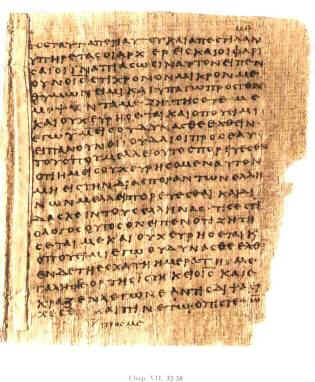- This syllabus mostly addresses procedures, expectations, and so on. For an overview of the focus, philosophy, and approach of the course, see the course Homepage. For due dates etc. of assignments, see the Assignments page.
Instructor Contact

| Name: | Andrew Scholtz |
| Office: | LT 509 |
| E-mail: | ascholtz@binghamton.edu |
| Phone: | No phone, E-mail |
| Office hours: | Walk-in R 1-3 or by appointment |
| Other: | Weekly schedule |
| Personal homepage |
Students with Special Needs
To quote the SSD office
"Binghamton University has a legal and ethical responsibility to ensure the provision of appropriate auxiliary aids, services and accommodations that afford enrolled students with disabilities equal access to, and participation in, all institutional programs and activities."
If you are a student in need of certain accommodations relating to your participating on an equal basis in this class, please inform me (the instructor) at your earliest convenience. To obtain those accommodations, it will be necessary for you to visit the office of Services for Students with Disabilities and to obtain the appropriate documentation, which you will then share with me, typically by E-mail. It is my responsibility to work with you on this, but it is yours to make sure I know of your needs and have proper documentation of them. It will also be your responsibility to remind me if/when/how special arrangements need to be made.
Sensitive Content
I acknowledge that we all come to this class, "Race for Glory," with experiences that shape how each of us receives and processes the material to be studied. Please know that I seek to be sensitive to that fact, and that I carefully curate course content, including more sensitive content, with a view to learning goals.
Some topics may prove more challenging to deal with than others. Such topics include:
- Race
- Gender
- Sexuality
- Bias
- Violence
- Bullying
If those or other topics prompt discomfort or upset, I encourage you to talk about it to me, to friends, or to family. Our class is designed for the purpose of expanding our intellectual horizons, and I shall support you at all points in the learning process.
Expectations (rules and regulations)
General
BY ENROLLING IN THIS COURSE, students agree to abide by expectations set forth in this syllabus and in other course-related documents.
Expectations include:
- Adherence to the University's standards and regulations regarding academic honesty (see further below)
- Respectful and courteous treatment of others participating in this class, both while class is in session and between meetings. That means:
- No distractive, discourteous, disrespectful, or offensive (racially, sexually, etc.) action or speech, as prohibited by the Code of Student Conduct.
- More on respectful speech on the Progumnasmata page.
- No unnecessarily disruptive comings or goings in/out of class.
- No distractive use of electronic devices (see below).
- No activity not related to class.
- No distractive, discourteous, disrespectful, or offensive (racially, sexually, etc.) action or speech, as prohibited by the Code of Student Conduct.
Failure to abide by these expectations could result in appropriate disciplinary action.
Academic Honesty
By enrolling in this course, you:
- Agree to abide by the provisions of University's standards and regulations regarding academic integrity, and
- Consent to submit all written work to Turnitin.com or other, similar anti-plagiarism databases for textual similarity review.
What is academic honesty, aka academic integrity? It is the ability to say that:
- Your work is yours
- You have pointed out how you have relied on the words, ideas, research, etc. of others
- You have not cheated on tests, exams, or other assessments
- You have done nothing to interfere with the work of fellow students or the instructor
All borrowings of ideas or words, all direct quotation, all paraphrasing, all help that books/articles/web sites/research aids of any kind provide you with, all of the aforementioned needs to be cited. Downloading or purchasing of papers, having others do the work for you — that kind of thing will get you in a whole lot of trouble.
Attempts to pass another's work off as your own will be treated as plagiarism in violation of the University's Honesty Code (links below). That includes, but is not confined to, unacknowledged use of AI-generated content in speaking or writing assignments. But any and all use of AI-generated content is forbidden.
- Please note that apps/sites like ChatGPT are unlikely to produce "responses" usable for our oral/writing assignments. That may not, however, stop everyone from using them. Still, there exists a tool quite adept at discovering AI-generated content. But humans can do that, too. Avoid AI for this course.
Penalties for academic dishonesty, even for minor infractions, can be severe. For this course "Category I Violations" typically entail:
- Final course grade of F
- Notation filed in student's record.
"Category II Violations" (more severe offenses) can result in your being expelled from the University.
Updating of Course Pages
Course-related materials maintained by the instructor will remain substantially unchanged throughout the semester, but may need to be modified or updated from time to time. As instructor, I therefore reserve the right to alter, as needed and in reasonable ways, details of the assignment schedule etc. etc.
Learning Objectives (Goals)
SUNY GenEd (General Education) Student Learning Outcomes
H Requirement — Humanities
"Students in H courses will demonstrate an understanding of human experience though the study of literature or philosophy."
By taking this course, you should gain a grasp not just of the basic historical facts but of new ways to understand those facts and related phenomena, including issues, at once timeless and timely, of persuasion, public speech, and political power.
O Requirement — Oral Communication
"Students in O courses will demonstrate
- "Proficiency in oral presentations.
- "The ability to improve oral presentations in response to critiques.
- "Skill in listening to and critiquing oral presentations."
More under Oral Presentations, this page.
Harpur Writing ("W")
"W courses will:
- "Provide considerable experience in and feedback on writing as a tool of college-level teaching and learning
- "Typically consist of a minimum of 10 pages of writing
- "Written assignments in W courses constitute 30 to 100 percent of the basis for the grade in the course"
More at Harpur College Writing Requirement page.
Other Goals
Course-Specific
To explore key aspects of Greek culture, especially its competitive dimension, under Roman Imperial rule:
- Athletic training and competition.
- Euergetism, i.e., the race for prestige by wealthy sponsors of public works.
- Rhetorical culture, which, for the time and place that concerns us, often goes by the name "second sophistic."
- Issues of gender and sexuality in relation to status and prestige.
- Literary treatments of the experiences of sub-elites.
To gain "hands-on" familiarity with our subject matter through:
- Assigned readings.
- Written "quiz responses."
- In-class discussion.
- Testing of knowledge acquired and of the ability to process it.
- Written composition, and oral delivery, of speeches, etc. and peer-critique of same.
Critical Thinking, etc.
To read, think, speak, and write with a view to strengthening the following core skills:
- Critiquing arguments.
- Formulating and defending arguments.
- Structuring the presentation of arguments.
- Framing arguments in accessible, clear, and persuasive language.

Required Texts
REGARDING REQUIRED TEXTS, it is recommended that we all work from the same editions, as we shall be dealing mostly with translations, which can vary widely in quality. All readings are accessed online via:
- Brightspace course site > Content > Links to Readings
- "Bingdev" links (this site)
Online Access, Dual Web Sites
This course employs two separate web sites:
- The "Bingdev" web site (where this syllabus resides), and,
- The Brightspace course site.
The "Bingdev" web site will provide access to course-related information and materials of a non-secure, mostly static character, including:
- Syllabus (this document)
- Assignment schedule
- Study guides
- Lectures / instructor's PowerPoints
- Various other informational pages
The Brightspace course site is mostly for materials and links OF A SECURE NATURE, things that won't be accessible to the general public via internet or Google: quizzes, Turnitin links, etc.
E-mail Contact
You're going to need to check your BU E-mail on a regular (at least daily) basis, as that will be the principal medium for instructor-student communication outside class.
My E-mail is ascholtz@binghamton.edu. For my office hours, schedule, etc., see my Schedule.
Attendance
Attendance is required, as is prompt arrival at class; learning cannot happen if we are not there on time and participating. Attendance will be taken and will figure into the participation grade. Students missing 7 or more classes without valid excuse (see following) may lead to a course grade of F (fail). A pattern of tardiness can and will count as absence(s) at my discretion.
To leave class early unexcused will count as absence; any graded exercise due that day in class will count as zero. (Don't leave before the end of class!)
IF YOU ARE HONESTLY ILL (note that instructors do not ask for physicians' notes or similar) or otherwise cannot make a given class or classes for VALID REASONS. . .
- Religious observance
- Job interview
- Death in family
- Act of God
. . . contact me AT YOUR EARLIEST CONVENIENCE via E-mail to receive credit for missed classes and to reschedule in-class assessments and the like.
- Note that personal travel plans, "vacation extenders," oversleeping / alarm-clock malfunction, absentmindedness (keep track of class- and assignment-schedules), etc. etc., do NOT count as valid excuses for missing class or for missing assignments, tests, exams, etc.
For more on attendance, see the University Bulletin > Academic Policies and Procedures > All Students > Attendance in Classes.
Late Assignments
Without a valid excuse (medical, family emergency, job interview, etc.), failure to submit assignments on time, or to attend graded in-class assessments (exams, orations, oration critiques), will result in a grade of zero for the materials or exercises in question.
- It is your responsibility to arrange for make-ups promptly. Think of it this way: Excusably absent from class Thursday, makeup Friday or Monday. Tuesday ordinarily too late.
Assessment of Student Work (grading)

| progumnasmata (practice speeches) | ||
| GenEd O* | Harpur W* | |
| muthos (fable) | 3% | 6% |
| encomium (praise speech) | 6% | 12% |
| ekphrasis (description) | 6% | 12% |
| speech critiques | 5% | -- |
| other assessments | ||
| quizzes = journal responses | 20% | |
| midterm exam | 10% | |
| final exam | 10% | |
| participation | 10% | |
| total | 100% | |
* For an explanation of the "GenEd O"/"Harpur W" split of the grade for each of three progumnasmata, see below.
In-Class Use of Laptops, Other Devices
Use of laptops, tablets, and cellphones in class is allowed, but only under the following restrictions:
- May be used only by permission of instructor, and ONLY for note-taking, or other class-related use
- All such devices must be turned OFF and placed OUT OF SIGHT during tests and exams
- See further Academic Honesty section of this syllabus.
- By enrolling in this class, you implicitly consent to my monitoring of device use during class
- No audio or video recording will be permitted, except by special arrangement with the instructor
Those who fail to abide by the above conditions will be denied the use of such devices in class.
Participation, Reading, Preparation, etc.
Assigned readings and associated quiz responses must be done, and on time, which is to say, by class on the date indicated on the assignment schedule. (Online quiz responses to be submitted by 9am on the indicated day.) That is to foster substantive and engaged participation — discussion, etc. — by students. Discussion will mostly center on issues, topics, and exercises listed on the schedule of assignments and on study guides. The participatory part of the grade will count a full 10%.
Don't be surprised when I call on you in class. I do this a lot; it actually works well.
- My cold-call questions rarely put you on the spot
- Rather, they are open-ended; they are intended to elicit reaction, response, engagement
Our communication in class has to be class-related, orderly, and respectful. At the same time, it must happen. We're engaging in dialogue, not showing off. Participation "A"s aren't about genius thoughts; they're about being part of theprocess of brainstorming and vetting ideas.
Study Guides
You should understand that study guides are are a required part of assigned reading. Each study guide for a given assignment needs to be read and absorbed just like the rest of the assignment.
- Study guides, designed to be user friendly, especially for those new to the ancient Greek and Roman worlds, introduce readings and related material, including background (historical, etc.) crucial to make sense of it all
- Study guides clue you in to important topics for discussion in class and for quiz responses
Study guides can be accessed via the "Assignments" page next to each reading assignment. Plus, there is a section devoted to them on the All Course Pages page
Quiz Responses via Brightspace Course Site
For every class meeting for which a reading has been assigned (NOT for oral-presentation or exam days), all students will submit, via the Brightspace course site > Quizzes page, a "quiz response" based on prompts at top of relevant Study Guides. These "quiz responses" aren't really quizzes; they're journal entries visible only to you, the individual learner, and to me, the instructor. (I call them "quizzes" only because Brightspace doesn't allow me to create journals; it's a work-around.)
This is relatively low-stakes writing; it's mostly meant to get you thinking. An evident lack of care in responses will, however, be penalized.
Quiz responses are graded as follows:
- 0 (F) = no quiz response found, or a quiz response that is completely off-base or otherwise unacceptable (much too short, violates academic honesty, etc.)
- 60 (D) = quiz response found; approaches, but does not meet, expectations
- 78 (C+) = quiz response meets expectations, but no more. What are expectations?
- That the quiz response is your own work. If it is not, you will be subject to an academic honesty procedure
- That the quiz response shows a good-faith effort to supply information, reflection, critical thinking, etc. in adequate measure and as requested by the relevant quiz prompt
- That the quiz response is clearly written, grammatical, and correctly spelled and punctuated
- Perfection is not expected, we all make mistakes! Carelessness will, however, be penalized.
- 100 (A) = quiz response exceeds expectations
Quiz responses are to be done and on time. Late responses will be penalized at the discretion of the instructor.
Failure to keep up with quiz responses will receive the extra penalty of 0% participation.
Oral Presentations, Harpur Writing
In fulfillment of the requirements for both O-"Oral" GenEd courses and Harpur Writing ("W") courses, students will individually compose and present three progumnasmata, or "preliminary rhetorical exercises" (no group presentations)" That will involve
- Composing and uploading of an initial draft containing the text of the address to be delivered in class.
- Oral delivery, in class, of the address in question, followed by student comment.
- Revision and upload of a final draft. This final written version will be graded separately from the oral delivery of your speech, as per above.
For specific due dates, see Assignments. For details as to the nature of each assignment, length, topic, research, etc., you will need to consult the Progumnasmata page.
Speech Critiques
As an aspect of the "O" component of this course I'm asking students to offer critique of other students' speeches. A copy of the form, with questions, and thus with grading criteria for the oral component, can be found here.
Note that critiques will be graded, not each one but as a whole at the end of the semester. At a certain point mid semester I'll be offering a preliminary evaluation of critiques. That grade won't be the one figured into the final course grade, but it should reflect where things stand, and how improvement can happen.
Please don't be unfair, but don't soft-pedal critique, either. If everything everyone's doing is perfect — and it never is — then where's room for improvement?
In multiple-choice responses to the questionnaire, blanket "a"s or "a"s and "b"s are going to look inflated. Be sure to supply reasonably substantial comment at end; that's where you're help your fellow student the most.
Exams
There will be two exams, a midterm and a final, weighted as per above. Each will include a factual component (short or shorter answer) and a summative, critical-thinking component (essay). See relevant study guides:
- Midterm Exam study guide
- Final exam study guide
